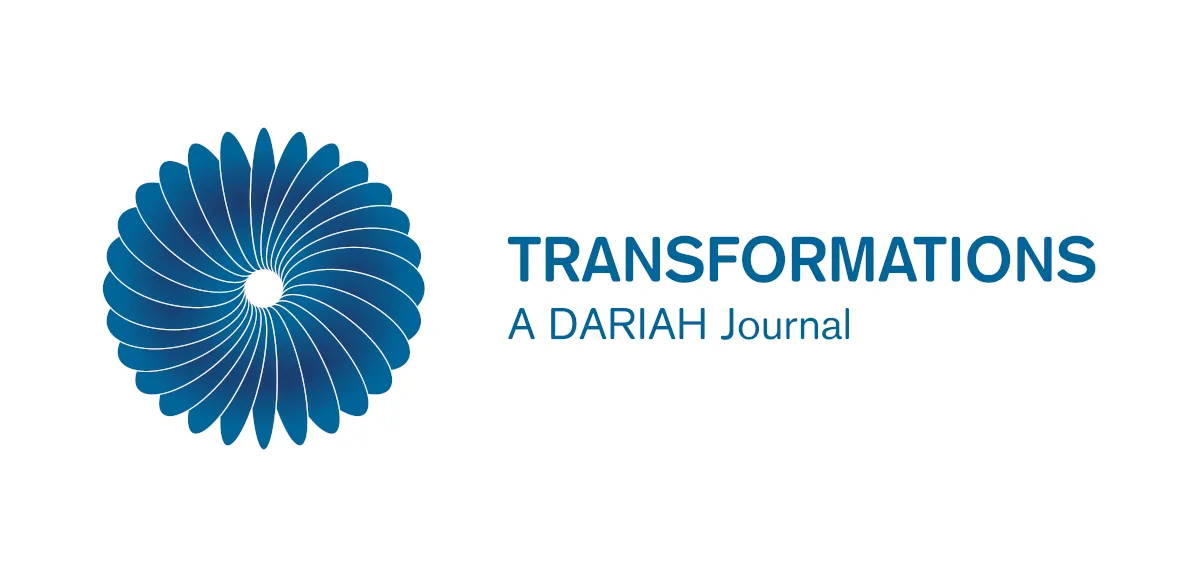
Transformations: A DARIAH Journal - 1st Call for Contributions!
Transformations: A DARIAH Journal is a multilingual journal created in 2024 by the European research infrastructure DARIAH ERIC .
This journal is an ongoing publication with thematic issues in Digital Humanities, humanities, social sciences, and the arts. The journal is particularly interested in the use of digital tools, methods, and resources in a reproducible approach. It welcomes scientific contributions on collections of data, workflows and software analysis.
Transformations: A DARIAH Journal is dedicated to providing a trusted, non-commercial platform for documenting various methodological and research activities in arts and humanities, including data gathering and processing, annotation and modeling, analysis and interpretation.
It embraces ephemeral or experimental scholarly outputs, including descriptions and analysis of data collections and workflows, annotation practices, software tools and training materials, as well as traditional scholarly papers.
As an academic journal with an infrastructural bent, Transformations prioritizes the integrity, reproducibility and sustainability of research practices in the arts and humanities.
DARIAH publishes contributions from the broad spectrum of digital arts and humanities as well as individual humanistic disciplines that rely on the use of digital tools, methods and assets.
Transformations: 1st Call for Contributions
DARIAH-EU is pleased to announce the first call for contributions of the first issue of Transformations: A DARIAH Journal , hosted by Episciences Diamond publishing platform.
Transformations is an overlay journal with a unique editorial line and publication project, which relies on a Diamond Open Access evaluation and publication platform. Read more on this alternative and transparent publishing model here .
Issue #1
Workflows: Digital Methods for Reproducible Research Practices in the Arts and Humanities.
Call for contributions
For the first issue of Transformations, DARIAH is looking for contributions that explore, assess, and analyse the challenges of designing, implementing, documenting and sharing digitally-enabled workflows in the context of arts and humanities research. DARIAH welcomes submissions that shed light on these challenges from a technical, methodological, infrastructural and/or conceptual point of view.
Submissions can take the form of classical research articles, project notes, tool descriptions, data papers, or workflow analyses. Conference posters can be submitted as project notes, providing a detailed, coherent and self-standing narrative based on the original poster’s content. DARIAH invites contributions that address a variety of questions in terms of best practices: What is the state of the art in research workflows in the digital arts and humanities? What are we doing well, and what should we do better? How can we evaluate the appropriateness of a workflow or assess its efficiency?
Facing the challenges of disciplinary complexities, DARIAH is interested in what makes a workflow innovative and whether there are differences in the way we define and implement workflows in different scholarly domains. What is the role of interdisciplinarity? How can collaborations between experts from different disciplines (arts, humanities, technology etc.) lead to new insights and more comprehensive solutions?
DARIAH also welcomes discussions on ethical aspects, such as what it means for a workflow to be both ethical, reproducible and sustainable. To what extent is the increasing use of artificial intelligence (AI) affecting our research workflows? What will be the role of responsible, human-centric AI in the future of research workflows?
Contributions that raise awareness about workflows in general are equally relevant. DARIAH is looking for input on what kind of documentation is necessary and at what level of granularity; whether there are modelling, standardisation or data management frameworks that make the documentation of workflows easier; and the role of training and education in preserving and communicating workflows. Additionally, DARIAH wants to understand how we can become better aware — both institutionally and conceptually — of the tacit knowledge and hidden costs which seem to be embedded in our day-to-day professional activities?
Other topics related to digital workflows in arts and humanities research will also be welcome.
Submission and evaluation process
Transformations is an overlay journal , which means that authors will be expected to first deposit their manuscripts in an open repository or preprint server such as HAL or Zenodo ; and then submit the link to their preprint by logging on to the journal’s website in Episciences .
In the Authors’ section on the journal’s website, you will find additional information on Submission steps , Evaluation process and Author guidelines to help you through the submission and publication process.
All contributions will undergo an open peer review process. We will use open identities, which means that author and reviewer identities will be disclosed to each other. We won’t publish the review reports themselves.
For this particular issue, DARIAH will be accepting submissions in English only.
The evaluation criteria focus on the scientific quality of the manuscript, including the solidity of the methodology, the relevance to the current state of the art,and the usefulness of the insights that can be gained from it. The reviewers will also pay attention to the form of presentation, the overall readability and clarity of argumentation, as well as the accessibility of all the data relevant to the submission. For each submission type, these criteria will be applied according to the best practices of the relevant research communities.
Reviews will be conducted by members of the Scientific Committee, external qualified reviewers, or, if necessary, members of the Editorial Board. This collaborative approach ensures that each submission is evaluated by experts with relevant knowledge and experience, maintaining the highest standards of scholarly review.
Reviewers will be asked to provide formative feedback, even if an article is not deemed suitable for publication in the journal. For the peer review process, we will rely on the Ethical guidelines for peer reviewers from COPE .
Timeline
- Submission deadline: All proceedings of DARIAH Annual Event 2024 must be submitted to Transformations by
31st October 202415 November 2024 - Notification of acceptance: expected around December 30th, 2024.
Contact
transformations /at/ episciences.org
Transformations: 1st Call